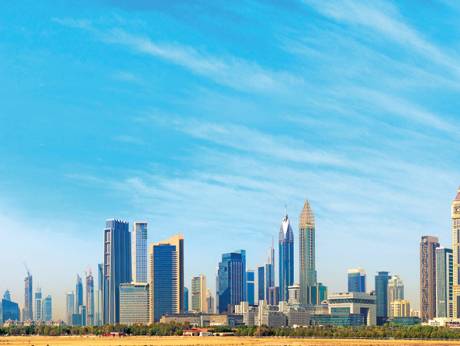New financing options could further enhance the attractiveness of Dubai’s property market for both local and foreign investors. The Mortgage Law recently proposed by the Dubai Land Department (DLD) will be a key instrument that will bring in more specialised funds and create alternative financing beyond standard funding from banks. The new law could, for instance, allow institutions other than banks to take mortgage security over property, which, according to Daniel Le Moeligou, sales director at Home Matters, will open the market to private financing from domestic and international sources.
“This is not necessarily geared towards the traditional home purchase, but rather the non-standard finance market such as developers, corporates or persons with more complicated financial circumstances that cannot access the traditional bank financing market,” explains Le Moeligou. “The alternative financing methods will not necessarily feed money directly into the residential property market, but rather put liquidity into areas of the property market that have challenges getting access to traditional financing from the banks. With wider access for debt issuance against properties, the indirect impact on the UAE market is a greater possibility of significant investment from global institutional money.”
Le Moeligou says there are structural barriers to creating demand for alternative financing, the major one being the ability for the security holder to repossess in the case of default. “Current local banks and lenders can allow for up to two years for any repossession after default and is often a very expensive proposition,” he says. “To get significant take-up in an alternative financing route, it would be beneficial to address issues around being able to enforce the security.”
Current schemes
To attract buyers, many developers currently offer generous payment plans of up to 10 years wherein the bulk of payments are made on or after completion. Other developers also offer guaranteed returns or rental income, usually within three to five years.
The sale and leaseback model is another scheme that has been prevalent in Dubai. “The model has been popular in Dubai, particularly in the education sector, and provides support to the real estate market when traditional direct bank finance is limited,” Alexis Waller, partner and head of real estate at Clyde & Co.
Mortgage cap
As Dubai sees year-on-year growth in mortgage activity, easing the loan-to-value (LTV) ratio on the mortgages will be a significant step that will lower the entry barrier into the Dubai real estate sector, says Fadi Nwilati, CEO of Kaizen Asset Management Services. “Take ready property transaction as an example: a residential unit valued at Dh1 million under today’s mortgage rules indicate that you need to have around 20 per cent down payment plus around 7 per cent to cover all property transaction fees. That’s Dh270,000, which majority of the market doesn’t have, and hence are priced out,” Nwilati explains. “Increasing the LTV will open the market to a bigger investment pool.”
To prevent abuse, Nwilati says the policy may be readjusted only for first-time buyers. “If it is done for first-time buyers, it would cater for those who need it most.”
REITs
Also expected to be a key focus area of the new law is the integration of the real estate and capital markets, analysts say. Real Estate Investment Trusts (REITs) will play a vital role in this respect, explains Allsopp. “What this means is that an individual can invest into the property market without having actually to buy the property themselves,” says Allsopp. “This can help in many scenarios, whether it is from a cash point of view, the amount of risk you want to take or the amount of exposure you want.”
REITs account for 40 per cent of listed real estate in countries such as the UK and Singapore, but they only account for 5 per cent of the UAE real estate sector, says Nwilati.
Crowdfunding
Crowdfunding is another platform that Nwilati describes as a “win-win” solution for both developers and investors.
“It allows developers to target a larger pool of investors through technology and keeps investors updated on fundraising activity,” says Nwilati. “We have seen the launch of crowdfunding platforms like DuRise, Eureeca and Estate-Up in Dubai.”
In June, Dubai saw the first deal of an individual unit sold on a digital crowdfunding platform. Three investors pooled their money to be part owners of a Dh365,000 studio in Remraam. The property will potentially generate a net yield of 8.7 per cent, which will be distributed to the investors in proportion to their investment, according to Siddiq Farid, CEO of Smart Crowd, a digital real estate investment platform.
All rights reserved to the initial publisher for Gulf News
Collected and published by Arms &McGregor International Realty® editorial team. Get in touch with us at [email protected].

